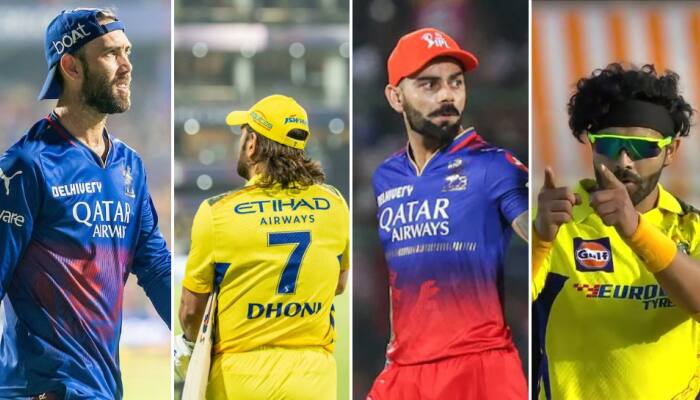AUS vs PAK 2nd Test: Usman Khawaja In Trouble Again For Wearing Black Armband To Support Civilians In Gaza
Usman Khawaja has sparked one more controversy after he was the only Australian cricketer wearing the black armband during the first Test vs Pakistan at Perth.
Trending Photos
) Usman Khawaja. (Image: X)
Usman Khawaja. (Image: X) Australia's opening batter Usman Khawaja has been making headlines this month but not because of his cricketing achievements. Khawaja has been quite vocal with his stance on war between Israel and Palestine and maintains that peace should be restored in war torned Gaza. He was to wear a pair of shoes in the first Test vs Pakistan that read 'All Lives Are Equal'. But a last-minute call taken by International Cricket Council citing the Clothing and Equipment Law.
Also Read | Robin Minz: MS Dhoni Told Father Of 'Ranchi's Chris Gayle' That CSK Will Buy Him If No One Does; Batter Fetched Rs 3.6 Crore At IPL 2024 Auction
As pe the law, no cricketer can wear anything on the cricket field except what is allowed under the rules. Khawaja posted a video on his social media, saying that he was not going to wear the controversial shoes but will surely look to get the permission to play with them.
Khawaja also said, in the same video, that some people were trying to make it a political matter when all that he was saying is that all lives in this world, irrespective of race or religion, are important and no life, especially of children, should be lost.
The opening batter wore black armband during the first Test. Turns out, Khawaja did not have the required permission to even wear that. News Corp reported that ICC allowes cricketers to wear the black armband only when a cricketer is going through a personal bereavement. In Khawaja's case, it was no such case.
The ICC’s clothing and equipment regulations state that: “In determining whether a message is for a ‘political, religious or racial cause’, the starting point is that the ICC and its members acknowledge and agree that cricket should be used as a tool to bring people and communities around the world together and not as a platform to draw attention to potentially divisive political issues, rhetoric or agendas.
“Each case must be considered on its own facts and the ICC will take into account all relevant circumstances, including (as it sees fit): (a) the views of any other relevant team or individual; (b) the likely sentiment and response in the media to the message in all relevant countries; (c) whether the message is a ‘one-off’ or whether it is to be displayed for a longer period; (d) the purpose and impact of conveying the message,” the regulations continue.
A Khawaja-like case had happened during the 2003 World Cup, when Zimbabwe cricketers Henry Olonga and Andy Flower had wore black armbands to protest the happenings in their country by the government. Back then, the Zimababweans were let off by match referee Malcolm Speed who told the cricketers that they were in breach but no action was going to take place against them.
Live Tv







)
)
)
)
)
)
)
)
)
)
